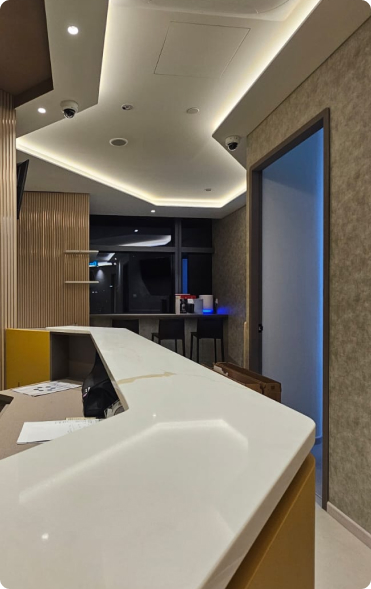Frequently Asked Questions (FAQ)
Essentially, plastic surgery is a combination of scientific precision and artistic skill, aimed at reconstructing or modifying body parts to improve both their functionality and appearance. It goes beyond medical concerns, incorporating aesthetic considerations to achieve a harmonious balance between form and function. Read on for more insights into frequently asked questions.
Consultation on Plastic Surgery
Plastic surgical procedures which are considered medically necessary can be covered by Medisave and, depending on qualifying criteria set by your insurance policy. Common criteria include:
- Breast reduction (≥ 250g removed from each breast)
- Droopy-eyelid (ptosis) surgery upon review and confirmation by ophthalmologist
- Body contouring post massive-weight loss surgery (bariatric surgery) which includes “tummy-tuck” (abdominoplasty) and belt-lipectomy, reduction of upper arm “bat wings” (brachioplasty), thighs reduction, removal of back rolls and for men, chest reduction (reduction gynecomastia).
You should consider plastic surgery if following trauma or disease, you experience physical discomfort or seek to improve your appearance. Plastic surgery can also be used to correct congenital physical abnormalities or address signs of ageing for rejuvenation purposes.
At your first consultation, articulate your goals and expectations clearly. Make known the areas of body concern you have, and express the changes you aspire for. A proficient plastic surgeon will assess your unique situation and recommend the most suitable options to help you make a well-informed decision.
Women with post-pregnancy woes such as sagging breasts, loose abdominal skin, stubborn fat deposits in the lower pelvic region, and weakness and separation of the rectus muscles can tackle these issues with a customised Mommy Makeover, a combination of two or more of these procedures performed at the same time: Tummy Tuck and Rectus Diastasis Repair, Breast Reduction and/or Lift, Liposuction, and Facial Skin Tightening and Rejuvenation.
Gynecomastia, eyebag removal, droopy eyelid treatment, liposuction, facial bone contouring and double jaw surgery rank high in men seeking cosmetic enhancements to their appearance—a rejuvenated face, a balanced facial structure, a defined chest, a slim waist, and more.
While plastic surgery is often thought of as a solution for cosmetic enhancements, it can also help athletes perform at their best, feel more confident, and elevate their overall game. For instance, body contouring—in addition to providing cosmetic benefits—can help reduce body fat and lower body mass index to enhance speed, endurance, and overall performance. For female athletes, breast reduction is one of the most common procedures, allowing for greater agility and freedom of movement.
Both aesthetic and reconstructive surgery aim to achieve the best possible cosmetic outcome. Unlike aesthetic surgery which focuses on enhancing appearance to achieve the desired look, reconstructive surgery is primarily concerned with correcting or improving physical impairments caused by trauma, disease, or congenital conditions.
Dermatologists are often the go-to for routine skin concerns and less invasive cosmetic procedures. Like certified dermatologists, plastic surgeons also understand skin care. However, while a dermatologist has in-depth knowledge of skin functionality and physiology, a plastic surgeon is well-versed in facial and body anatomy, and has undergone extensive training in in both invasive and non-invasive techniques.
Visualize the change.
Experience the impact.
Celebrate the outcome.
Experience the impact.
Celebrate the outcome.
Recovery after Plastic Surgery
Recovery time varies, based on the type of surgery as well as the patient's overall health and adherence to post-operative care instructions. For less invasive procedures, many patients can return to their normal activities within a week or two; more complex procedures may require several weeks or a few months for a full recovery.
Following plastic surgery, it is important to steer clear of foods that can cause inflammation, such as red meat, processed meat, and refined carbohydrates. It is also advisable to refrain from drinking alcohol, which can hinder the body’s natural healing process.
The initial results of your plastic surgery can be seen as your body enters the recovery phase after the first few days of post-surgery discomfort. More significant improvements will be evident as swelling and bruising subside. You can appreciate the full results of your surgery after the final phase of recovery.
Consultation and Clinic-based Procedures:
101 Irrawaddy Road, #17-08
Royal Square Medical Centre
Singapore 329565
Consultation:
6 Napier Rd, #05-03
Gleneagles Medical Centre,
Singapore 258499
Contact Information:
Tel : +65 6592 7880
WhatsApp : +65 9831 8618
Operating Hours:
Mon - Fri
: 9AM - 5:30PM
Sat
: 9AM - 1PM
